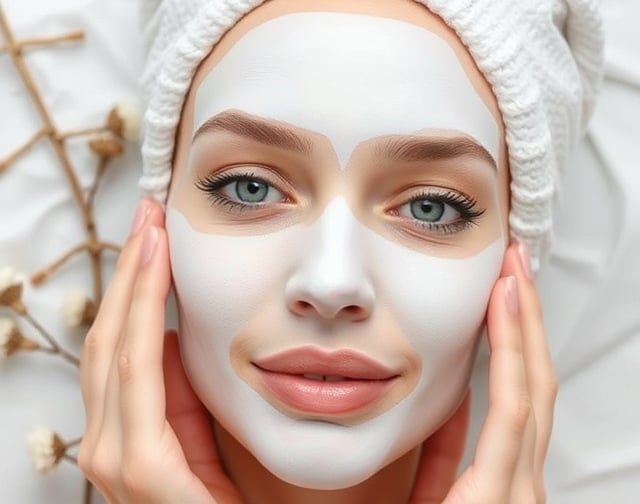The Ultimate Guide to Skincare: Achieving Healthy, Glowing Skin
A comprehensive guide to skincare, offering essential tips for maintaining healthy, glowing skin. It covers the basics of skincare routines, including cleansing, toning, moisturizing, and sun protection, while also exploring advanced treatments like chemical peels and microneedling. With advice on understanding your skin type, choosing the right products, and adopting healthy habits, this post empowers readers to care for their skin and achieve a radiant complexion. Whether you're new to skincare or looking to refine your routine, this guide is a valuable resource for everyone. Embrace a healthier, rejuvenated you with Glow With Deepna!
Deepna
12/20/20244 min read


Why Skincare is Important
The skin is the body’s largest organ, serving as a barrier that shields us from environmental factors such as UV rays, pollutants, and harmful microorganisms. It also regulates temperature and prevents dehydration. A skincare routine is necessary to help maintain the skin’s integrity, prevent premature aging, and ensure that it functions properly. Whether you're dealing with acne, dryness, sensitivity, or signs of aging, taking care of your skin is key to feeling and looking your best.
Understanding Your Skin
Before diving into skincare products, it's essential to understand your skin type. Skin varies from person to person, and recognizing your unique skin type can help you choose the right products and avoid irritants. There are five main skin types:
Normal Skin: Balanced in terms of moisture, not too oily or dry.
Dry Skin: Lacks moisture and may appear flaky or rough.
Oily Skin: Produces excess oil, leading to shiny skin, enlarged pores, and often acne.
Combination Skin: A mix of oily and dry areas, typically with an oily T-zone (forehead, nose, chin) and drier cheeks.
Sensitive Skin: Prone to redness, irritation, burning, or itching when exposed to certain products or environmental factors.
Understanding your skin type will help you select the appropriate products that target your specific needs, whether it’s hydration, oil control, or soothing irritation.
Building a Skincare Routine
A proper skincare routine doesn't have to be complicated. The key to effective skincare is consistency, and a simple routine can be just as effective as an elaborate one. Here's a basic skincare routine to get you started:
1. Cleansing
Cleansing is the foundation of any skincare routine. It removes dirt, oil, makeup, and other impurities that accumulate on the skin throughout the day. Depending on your skin type, choose a gentle cleanser that won’t strip the skin of its natural oils. For dry skin, opt for a hydrating cleanser, while those with oily skin may benefit from a foaming or gel-based cleanser.
Tip: Wash your face twice daily—once in the morning and once before bed—to maintain clean skin.
2. Toning
Toning is an optional but helpful step to balance your skin’s pH after cleansing. Toners can help remove any leftover impurities and prepare your skin for better absorption of the products that follow. For dry or sensitive skin, choose a hydrating toner, and for oily or acne-prone skin, look for a toner with exfoliating ingredients such as salicylic acid.
3. Serums and Treatments
Serums are lightweight, concentrated formulas designed to address specific skin concerns such as acne, pigmentation, wrinkles, or dehydration. Ingredients like hyaluronic acid, vitamin C, and retinol are common in serums for boosting hydration, brightening skin, and combating aging signs. If you have specific skin concerns, such as acne, look for serums that contain ingredients like benzoyl peroxide or salicylic acid.
Tip: Apply serums when your skin is slightly damp to help lock in moisture.
4. Moisturizing
Moisturizing is a crucial step, no matter your skin type. Even oily skin needs hydration to maintain balance and prevent excess oil production. For dry skin, opt for a richer, thicker moisturizer, while for oily skin, go for lightweight, oil-free options. If you have combination skin, consider using different moisturizers for different areas of your face.
Tip: Use a heavier moisturizer at night to nourish the skin while you sleep.
5. Sun Protection
Sun protection is the most important part of your skincare routine. UV rays can cause premature aging, pigmentation, and increase the risk of skin cancer. Apply a broad-spectrum sunscreen with an SPF of at least 30 every morning, even on cloudy days or when you’re indoors near windows. Reapply throughout the day, especially if you're sweating or swimming.
Tip: Choose a sunscreen with both UVA and UVB protection, and consider mineral sunscreens (zinc oxide or titanium dioxide) for sensitive skin.
Additional Skincare Tips for Healthy Skin
Beyond the basics, here are some additional tips for maintaining healthy, glowing skin:
1. Exfoliate Regularly
Exfoliating removes dead skin cells that can cause dullness, clog pores, and prevent your products from penetrating the skin. Depending on your skin type, exfoliate 1-3 times a week using either physical exfoliants (scrubs) or chemical exfoliants (like AHAs or BHAs). Be careful not to over-exfoliate, as it can irritate the skin.
2. Hydrate from the Inside
Skin hydration doesn’t only come from topical products. Drinking plenty of water throughout the day helps keep your skin hydrated from within. Aim for at least 8 glasses of water a day and consider incorporating hydrating foods like cucumbers, berries, and leafy greens into your diet.
3. Get Enough Sleep
Sleep is vital for skin repair and regeneration. While you sleep, your skin goes into recovery mode, repairing damage and renewing cells. Aim for 7-9 hours of sleep each night to support your skin’s natural healing processes.
4. Avoid Smoking and Excessive Alcohol Consumption
Smoking and excessive alcohol intake can wreak havoc on your skin. Smoking reduces blood flow to the skin, leading to wrinkles and a dull complexion. Alcohol dehydrates the skin, making it look dry and tired. Limiting these habits can improve your skin's health and appearance.
5. Be Gentle with Your Skin
Avoid harsh products, rough scrubbing, and excessive touching of the face, as these can irritate and damage the skin. Instead, opt for gentle products and always pat your skin dry with a soft towel after cleansing. Patting rather than rubbing helps retain moisture.
Advanced Skincare Treatments
Once you've got the basics covered, you might consider incorporating advanced skincare treatments. These treatments can target specific concerns, such as acne scars, fine lines, or pigmentation:
Chemical Peels: These treatments use acids to exfoliate the skin and reveal a smoother, brighter complexion.
Microneedling: Tiny needles are used to stimulate collagen production and improve skin texture.
Facial Masks: Hydrating, detoxifying, and brightening masks can give your skin a quick boost.
Retinoids: Vitamin A derivatives, like retinol and tretinoin, promote cell turnover, reduce fine lines, and prevent acne.
It's important to consult with a dermatologist before beginning any advanced treatments to ensure they're right for your skin type and concerns.
Conclusion
Achieving and maintaining healthy, glowing skin requires commitment and care. By understanding your skin type, adopting a consistent skincare routine, and following a few additional tips, you can enhance your skin’s health and appearance. Whether you’re looking to combat acne, fight signs of aging, or simply maintain a fresh complexion, skincare is about consistency, the right products, and self-care. Always remember that healthy skin is beautiful skin, and investing in your skincare routine is an investment in your overall well-being.
